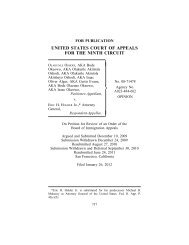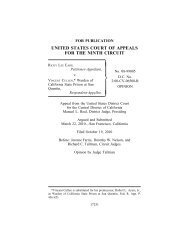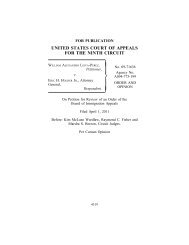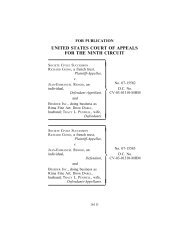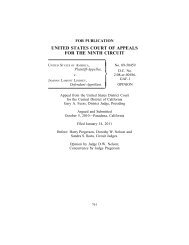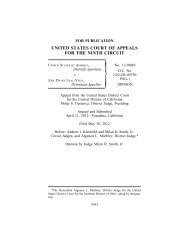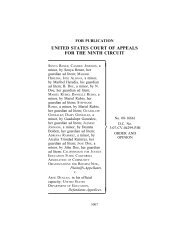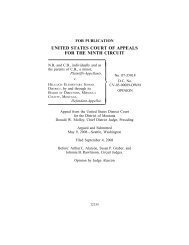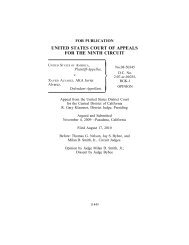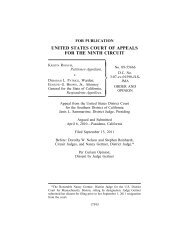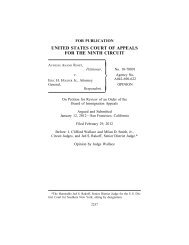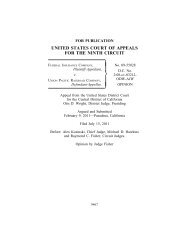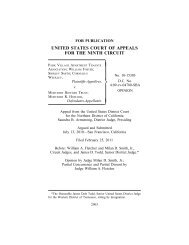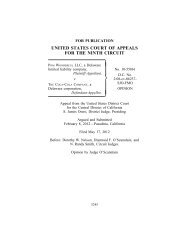UNITED STATES COURT OF APPEALS FOR THE NINTH CIRCUIT
UNITED STATES COURT OF APPEALS FOR THE NINTH CIRCUIT
UNITED STATES COURT OF APPEALS FOR THE NINTH CIRCUIT
You also want an ePaper? Increase the reach of your titles
YUMPU automatically turns print PDFs into web optimized ePapers that Google loves.
9740 PAYNE v. PENINSULA SCHOOL DISTRICT<br />
205, 209-10 (2007) (holding that the statutory time for the<br />
taking of an appeal from a district court decision is jurisdictional).<br />
Two cases recently decided by the Court are instructive. In<br />
Reed Elsevier, the Court examined a provision of the Copyright<br />
Act providing that copyright holders must register their<br />
works before bringing suit for copyright infringement. Section<br />
41(a) of the Copyright Act provides that “no civil action for<br />
infringement of the copyright in any United States work shall<br />
be instituted until preregistration or registration of the copyright<br />
claim has been made in accordance with this title.” 17<br />
U.S.C. § 411(a). Holding that § 411(a) is not jurisdictional,<br />
the Court pointed to three factors. First, the Court pointed out<br />
that § 411(a) does not “ ‘clearly state[ ]’ that its registration<br />
requirement is ‘jurisdictional.’ ” Reed Elsevier, 130 S. Ct. at<br />
1245 (quoting Arbaugh, 546 U.S. at 515). Second, the Court<br />
noted that § 411(a) was separate from other statutes that grant<br />
subject matter jurisdiction and that neither 28 U.S.C. § 1331<br />
nor 28 U.S.C. § 1338 — which is specific to copyright —<br />
mentions the registration requirement. Id. at 1245-46. Finally,<br />
the Court could not find “any other factor [that] suggest[s]<br />
that 17 U.S.C. § 411(a)’s registration requirement can be read<br />
to ‘speak in jurisdictional terms or refer in any way to the<br />
jurisdiction of the district courts.’ ” Id. at 1246 (quoting<br />
Arbaugh, 546 U.S. at 515); see also Henderson, 131 S. Ct. at<br />
1202-07 (reaffirming and applying Reed Elsevier’s methodology).<br />
In Jones v. Bock, 549 U.S. 199 (2007), the Court addressed<br />
whether the Prison Litigation Reform Act’s (“PLRA”)<br />
exhaustion requirement 2 was a pleading requirement that the<br />
2 The PLRA exhaustion provision reads:<br />
No action shall be brought with respect to prison conditions<br />
under section 1983 of this title, or any other Federal law, by a<br />
prisoner confined in any jail, prison, or other correctional facility<br />
until such administrative remedies as are available are exhausted.<br />
42 U.S.C. § 1997e(a).



